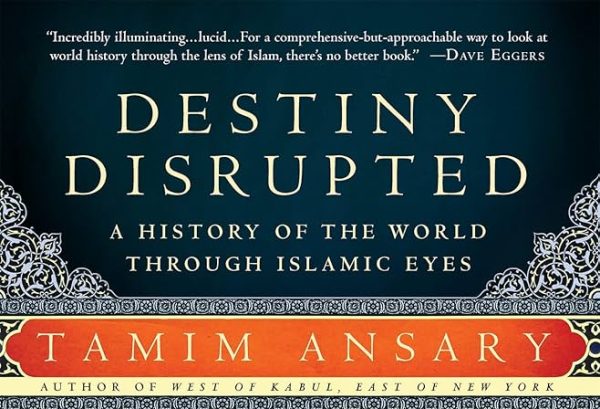ACB is not the new RBG
Ruth Bader Ginsburg, affectionately known as RBG, was the blueprint for what it meant to be a confident, educated and well-spoken woman.
Following her death, RBG was publicly honored at Statuary Hall in Washington, D.C., and became the first woman to lie in state at the Capitol.
Many of the liberties that women enjoy today are a result of RBG’s persistence throughout her career. RBG spent her life — quite literally until her last breath, fighting for our freedom.
With one of the most qualified and persistent feminists and liberals on the Supreme Court now gone, I can’t describe my emotions as anything other than heartbreak.
The ache reminds me that one of my greatest motivators is gone. RBG represented persistence and security in a world that so rarely favors underrepresented groups. While my initial reactions to her death were sorrow, shock, and a yearning for world news to be wrong — my next reaction was fear.
I felt my stomach churning at the realization of what would now follow RBG’s death.
I wouldn’t expect Trump to act nobly in this situation, but the appointment of another justice so quickly is like the twist of a knife. Her death was a foot in the door for the Trump administration to disrupt the progress made for social and civil liberties.
The fear of Trump’s inevitable bid to fill her seat left me despondent as I thought about the rights a predominantly conservative U.S. Supreme Court may abolish. RBG fought so hard to make it through this election year, and she deserves to rest, but the fallout feels dystopian.
RBG’s death represents more than the loss of an influential figure. This is a turning point in U.S history.
Her death, another cherry on top of the year that is 2020, has the U.S. spiraling in fear, anger and political hypocrisy.
President Trump’s formal announcement of Amy Coney Barrett as the new Supreme Court nominee is insulting.
Trump’s nomination came only eight days after RBG’s death. In 2016, Barack Obama waited over a month to nominate Merrick Garland following Justice Antonin Scalia’s death.
Barrett is the definition of backpedaling for progessive social change and equality in the country.
Many of the rights that women enjoy today including access to abortions, having a credit card and mortgage in their own name, and the ability to attend state-funded schools are direct results of the advocacy and persistence that RBG showed throughout her career in law.
In 2020, RBG voted in favor of upholding the Deferred Action for Childhood Arrivals (DACA) policy after the Trump administration attempted to terminate it. In 2015, RBG also voted with the majority to grant and recognize same-sex marriages in every state.
Barrett has adamantly opposed policies that aided abortion, immigrants, LGTBQ+ individials and healthcare rights, while RBG was a fierce supporter of each.
While there is no denying that Barrett is successful and educated, her power as a justice threatens the progress that RBG and other judges have made in affording equal rights to these groups. Barrett has routinely and unwaveringly spoken against policies and legislation that would aid these groups, time and time again.
In 2006, Barrett signed an anti-abortion ad that condemned “abortion on demand” and argued that life begins at fertilization.
Barrett has also voted unfavorably for immigrant rights. In June 2019, Barrett refused a naturalized US citizens plea to reconsider his case, after his wife was twice denied a green card. She was also the deciding vote in an immigration case that voted to deport a man with lawful permanent residency in the US for over 30 years. He was convicted of drug crimes that led to a 10-year prison sentence, and although his mother was a citizen, the man was never given the chance to argue in court that his deportation was unconstitutional.
And in the midst of a global pandemic — Barrett has been an adamant voice against the Affordable Care Act, which provides healthcare to millions of Americans. Arguments on the ACA will be heard by the Supreme Court on Nov. 10, just one week after election day.
Women belong in all places where decisions are being made — there is no argument against that. However, Barrett’s specific decision-making rationale threatens the rights of underrepresented groups that RBG spent decades advocating for.
My political beliefs and ideologies are not conservative, but my issue with Barrett is more than her political views. It’s her incorporation and interpretation of religion in politics. Separation of church and state exists to protect our rights and I don’t trust that Barrett can separate her religious views from the legislation that protects the health and civil rights of historically marginalized groups.
The announcement and the race to make it official by the Nov. 3 election seems inevitable. In 2016, Obama’s nomination of Garland was blocked for nine months. Republicans justified that decision by saying that Americans should choose the president who would appoint the next Justice.
In 2020, Republicans like Sens. Mitch McConnell and Lindsey Graham now say that those rules no longer apply.
Although the steps for confirming Barrett are Constitutional, appointing her so rapidly highlights the hypocrisy of the Trump administration.
The power to appoint a justice should lie with the winner of the 2020 election, whether that be Trump or Joe Biden. Trump has consistently boasted his vow to “Keep America Great,” but the rush to appoint a new justice before the election tells me, a voter, that he is not confident of his reelection.
What shatters my heart more than RBG trying so hard to hold on to life until after the election, is that her fears were almost immediately confirmed. Whether you are a Democrat or a Republican, we should all be able to agree that RBG represented a turning point for underrepresented groups in history.
Republican politicians have made their support for Barrett clear, all but guaranteeing her confirmation. A majority conservative court will mean a hit to immigrants, healthcare, LGBTQ+ and women’s rights.
Although Americans are unlikely to have a say in who will replace RBG on the Supreme Court, November’s election is still about more than our individual interests. We can still have a say in the man that will represent America for the next four years.
As a democracy, we will either choose to vote for a candidate who can expand upon the rights so recently afforded to underrepresented groups, or we will suffer the consequences of seeing our progress gradually chip away under the Trump administration again.
Chloe Curtis can be reached at [email protected] or @ChloeCurtis__ on Twitter.









Karen O MILLER // Oct 29, 2020 at 9:29 pm
You are wrong. Separation of Church and state was to protect the church from doing exactly what you are doing. Bullying is something we certainly tell our kids, “Do as I say, not as I do”, obviously. Just because I disagree with you, and you with me, doesn’t mean we can’t be civil. I’m getting really tired of being told I’m not “allowed ” to have my own opinion. Why?
Katie Dahl // Oct 6, 2020 at 2:34 pm
You put into words the same frustrations i am feeling too right now. RBG spent her whole career building protections for women, minorities, and immigrants brick by brick. Trump’s nominee will tear down all the hard work she put in and expose these vulnerable group even more, all in the name of her own religious beliefs. Hypocrisy in government will only encourage distrust, and now is a time when we need unity the most. This truly is the cherry on top of the year 2020.